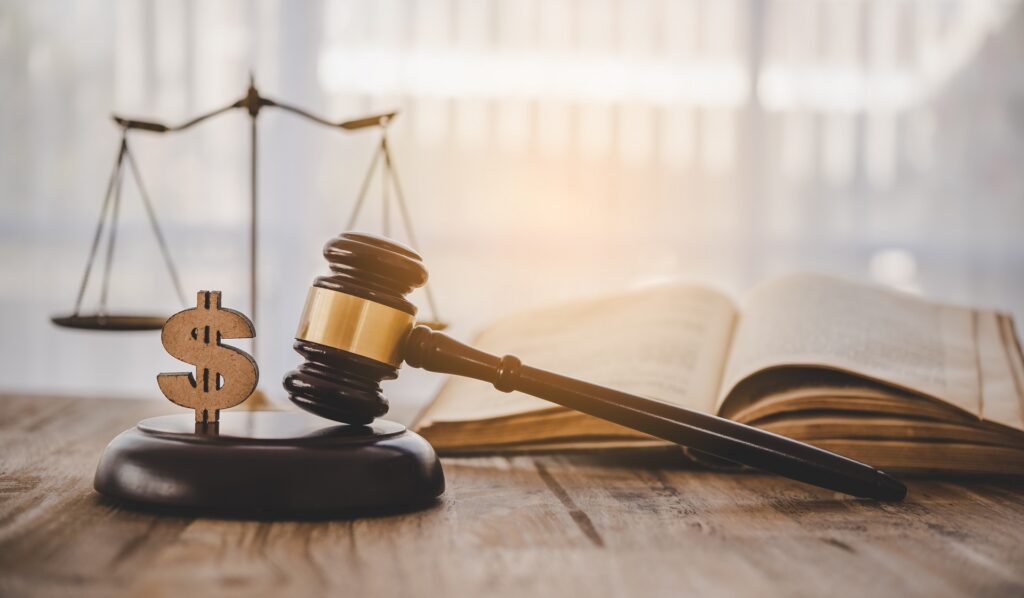Filing for Chapter 7 bankruptcy is a significant step for anyone facing overwhelming debt. This type of bankruptcy is designed to help individuals, married couples, and businesses eliminate or significantly reduce their debts under the protection of a federal court.
For residents of Central New York & The North Country, understanding the eligibility criteria for Chapter 7 bankruptcy is crucial before making any big decisions. It’s important to understand not only the immediate implications of filing for bankruptcy, but also the long-term impact on a person’s financial health and stability.
Bankruptcy is often seen as a last resort after all other options have been exhausted. Therefore, this article will not only cover the basic qualifications and requirements, but also offer insights into the implications of bankruptcy and why it might be a necessary step towards financial recovery. This includes evaluating whether your income levels, types of debt, and past financial history make you a suitable candidate for Chapter 7.
If you’re considering Chapter 7 bankruptcy in New York, you need a bankruptcy attorney who not only understands the process, but also the emotional toll a decision like this can take. To find an experienced and compassionate New York bankruptcy attorney, call Grady BK, PLLC today.
Understanding Chapter 7 Bankruptcy
Chapter 7 bankruptcy provides a path for people and businesses to address overwhelming debt. It’s designed to help those with limited income who find themselves unable to meet their financial obligations. Under Chapter 7, personal assets are usually exempt from liquidation or sale, so unlike the common misconception, individual assets are not usually “lost” or “taken” during bankruptcy.
The process aims to discharge unsecured debts such as credit card bills and medical expenses and offers a fresh start to people with overwhelming debt. This fresh start lets people clear their debts and begin anew with their financial lives without the burden of financial obligations. Filing for Chapter 7 can also halt collection activities, including legal actions and communications from creditors. This “automatic stay” of collection activities provides immediate relief to people who have been harassed by their creditors for years.
Eligibility Requirements for Chapter 7 Bankruptcy
- Means Test: The means test is the first step in figuring out if you qualify for Chapter 7 bankruptcy. It looks at your average income over the last six months and compares it to the median income for a family of your size in New York State. If you earn less than the median, you qualify right away. If you earn more, there’s an additional step to check how much money you have left after basic expenses, which might lead you to consider Chapter 13 bankruptcy instead.
- Credit Counseling: You need to complete credit counseling from an approved agency within six months prior to filing for bankruptcy. This step is important because it helps you look at all your options before deciding that bankruptcy is the right path for you.
- Filing Status: Anyone can file under Chapter 7—whether you’re single, married, or a business owner. But if you’ve had a bankruptcy case dismissed in the last six months because you didn’t follow court orders or show up to hearings, you’ll need to wait about six months before you can file again.
- Debt Considerations: It’s important to know that not all debts disappear in Chapter 7 bankruptcy. Things like alimony, child support, certain taxes, student loans, and debts caused by a drunk driving accident usually aren’t covered.
- Previous Bankruptcy Discharges: If you’ve filed for and completed Chapter 7 bankruptcy before, you need to wait eight years from your last filing date to file again under the same chapter. If you want to file under Chapter 13 after Chapter 7, the waiting period is four years.
Common Misconceptions and FAQs About Chapter 7 Bankruptcy
1. Will I lose all my property?
Many believe filing for Chapter 7 will force them to give up all their personal assets. In reality, there are exemptions that protect certain types of property like your home, car, personal belongings, and retirement savings up to a specific value. Most people filing for Chapter 7 will not need to liquidate any assets at all, and afterward, their unsecured credit card debt will be discharged for good.
2. Does bankruptcy discharge all types of debt?
While Chapter 7 bankruptcy can help eliminate many types of debt, such as credit card debt and medical bills, it does not clear all financial obligations. Debts like student loans, certain taxes, alimony, and child support typically cannot be discharged, and will need to be paid off by the usual means.
3. Will my bankruptcy filing be public?
Bankruptcy filings are public records, but accessing those details usually requires someone to actively seek them out. Most personal acquaintances, employers, or neighbors will not know you filed for bankruptcy unless you tell them or they have a specific reason to search for this information.
4. How long will bankruptcy affect my credit?
A Chapter 7 bankruptcy can remain on your credit report for up to 10 years. However, the impact on your credit score will lessen over time. If you take active steps toward rebuilding your credit, you should be able to improve it in as little as one year.
5. Can I ever get credit again after filing for bankruptcy?
Yes, you can still get credit after bankruptcy. But it might come with higher interest rates or require a secured format at first. Many find they can start rebuilding their credit with careful financial planning and by using secured credit cards or loans.
Call Grady BK, PLLC to Find a Bankruptcy Attorney who Understands Your Needs
For those in Central New York & The North Country thinking about Chapter 7 bankruptcy, it’s important to understand the eligibility requirements fully. Bankruptcy law can be complex, and while it’s possible to file on your own, the guidance of an experienced bankruptcy attorney can make the process much smoother and easier to follow.
Bankruptcy professionals, such as our team at Grady BK, PLLC, can help steer you through the filing process and increase the likelihood that your bankruptcy is approved and completed. We’ll also ensure that you comply with all the legal requirements to start your bright new financial future.
Call Grady BK, PLLC, today at (315) 299-9005.



